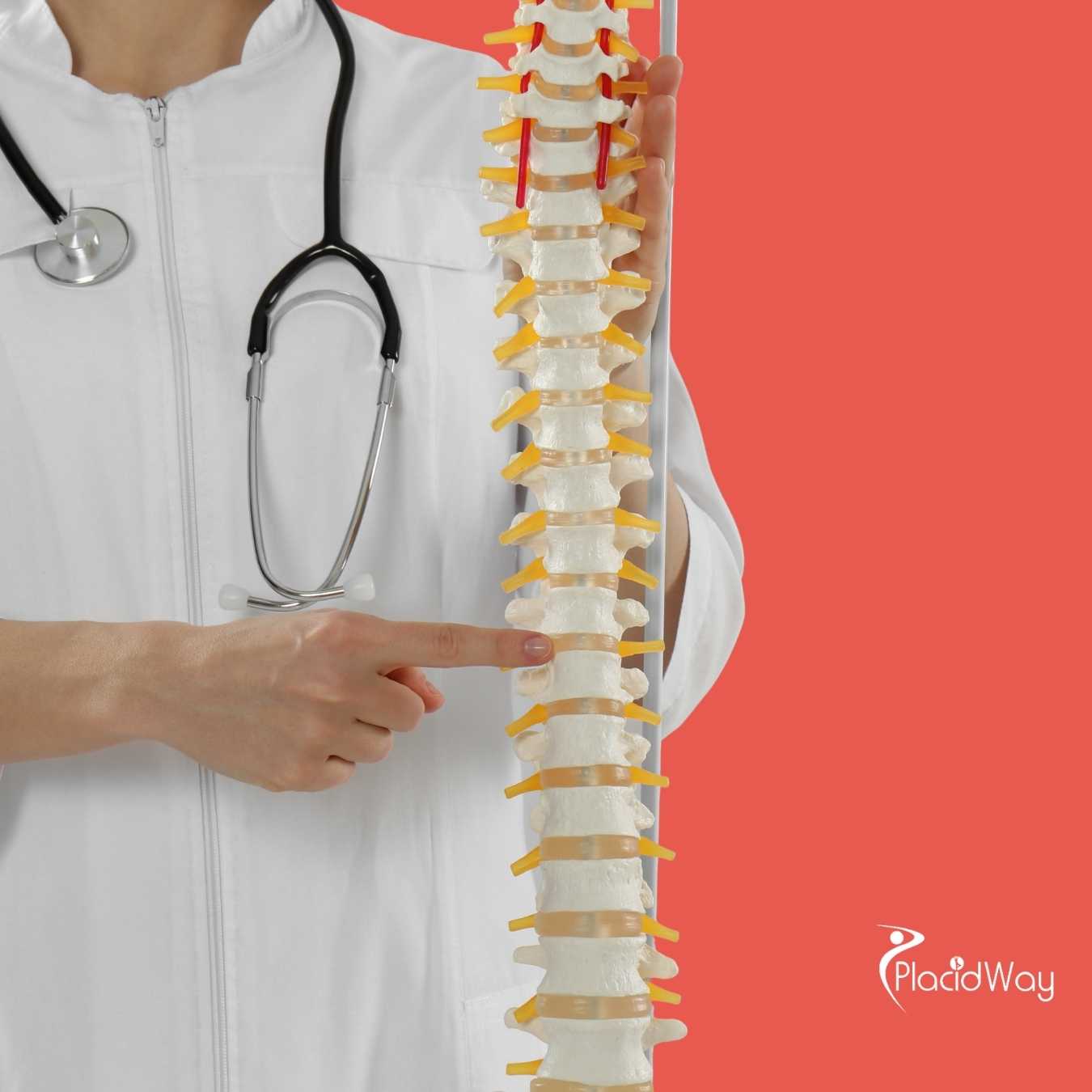Innovative Approaches to Treating Celiac Disease
.png)
Living with celiac disease can present unique challenges, but understanding the most effective treatments and emerging therapies is crucial for managing this autoimmune condition. This comprehensive guide will explore current best practices, discuss groundbreaking research, and address common questions surrounding celiac disease treatment.
Currently, the cornerstone of celiac disease treatment is a strict and lifelong gluten-free diet. This dietary approach successfully alleviates symptoms and allows the small intestine to heal, preventing long-term complications. While a gluten-free diet is highly effective, scientists and medical professionals are actively investigating new therapeutic approaches, including medications and immunotherapies, to potentially offer more comprehensive solutions for those affected by celiac disease.
What Exactly is Celiac Disease?
Celiac disease is more than just a food allergy or intolerance; it's a serious autoimmune condition. When individuals with celiac disease ingest gluten—a protein found in wheat, barley, and rye—their immune system mistakenly attacks the lining of their small intestine. This attack leads to damage of the villi, tiny, finger-like projections that are responsible for nutrient absorption.
Over time, this intestinal damage can lead to a wide range of symptoms, including digestive issues like bloating, diarrhea, and abdominal pain, as well as non-digestive symptoms such as fatigue, anemia, bone density loss, skin rashes, and neurological problems. Undiagnosed or untreated celiac disease can lead to severe health complications, including malnutrition, infertility, and certain types of cancer.
What is the Current Primary Treatment for Celiac Disease?
The established and currently most effective treatment for celiac disease is a strict, lifelong gluten-free diet. This means completely avoiding foods that contain gluten, including obvious sources like bread, pasta, cakes, and cookies made from wheat flour, as well as hidden sources found in processed foods, sauces, and some medications.
Adhering to a gluten-free diet allows the small intestine to heal, symptoms to subside, and nutrient absorption to improve. This dietary commitment requires careful label reading, knowledge of safe ingredients, and often, significant lifestyle adjustments. Working with a registered dietitian specializing in celiac disease is highly recommended to ensure nutritional adequacy and proper understanding of the diet.
Are There Any Medications for Celiac Disease Available Now?
As of now, there isn't a specific drug that can cure celiac disease or allow individuals to consume gluten without adverse effects. The gluten-free diet remains the only proven method to manage the condition. However, for a small percentage of individuals who do not respond to a strict gluten-free diet (known as refractory celiac disease), doctors may prescribe medications like corticosteroids to reduce inflammation and suppress the immune system.
These medications are not a long-term solution and come with their own set of side effects. Their use is typically reserved for severe, complicated cases where the intestinal lining continues to be damaged despite strict dietary adherence. The focus of medical research is on developing therapies that can either prevent the immune reaction to gluten, repair intestinal damage, or enable individuals to tolerate small amounts of gluten without harm.
What are Promising New Treatments for Celiac Disease in Development?
The landscape of celiac disease treatment is evolving rapidly with several promising therapies in various stages of development. These investigational treatments are broadly categorized by their mechanism of action:
- Enzyme Therapy: These are enzymes designed to break down gluten into harmless fragments before it can trigger an immune response. They are often taken orally before or with meals.
- Tight Junction Modulators: These therapies aim to prevent the increased intestinal permeability (leaky gut) that allows gluten fragments to enter the bloodstream and trigger an immune reaction in individuals with celiac disease.
- Immunomodulators: These drugs work by altering the immune system's response to gluten, either by preventing the activation of immune cells or by promoting tolerance.
- Gluten Vaccines: These are designed to desensitize the immune system to gluten, similar to allergy shots, potentially allowing for tolerance to small amounts of gluten.
While none of these are currently approved for widespread use as a replacement for the gluten-free diet, they hold significant potential to improve the quality of life for those with celiac disease, particularly in mitigating the effects of accidental gluten exposure.
How Do Emerging Therapies Like Enzyme Supplements Work?
Enzyme therapy for celiac disease is one of the most actively researched areas. The basic principle involves introducing enzymes that are capable of digesting gluten more effectively than human digestive enzymes. Since individuals with celiac disease react to specific sequences within the gluten protein that are resistant to normal digestion, these specialized enzymes target those problematic sequences.
The goal is to prevent intact gluten peptides from reaching the small intestine where they would normally trigger the autoimmune reaction. By breaking them down into smaller, harmless amino acids or peptides, the immune system would ideally not recognize them as a threat. These supplements are generally taken orally alongside meals. It's important to note that while some over-the-counter gluten-digesting enzymes exist, their efficacy for individuals with diagnosed celiac disease is not scientifically proven, and they are not a substitute for a strict gluten-free diet. The promising therapies currently in clinical trials use specific, potent enzymes designed for this purpose.
What About Immunotherapy for Celiac Disease?
Immunotherapy represents a significant area of research in celiac disease treatment, focusing on modulating the body's immune response to gluten. Instead of just trying to digest gluten, these approaches seek to alter the underlying autoimmune reaction. One key strategy involves oral tolerance induction or a form of vaccination where small, increasing doses of gluten peptides are administered to "desensitize" the immune system.
Another avenue is the development of drugs that target specific immune cells or signaling pathways involved in the inflammation and damage characteristic of celiac disease. For example, some therapies are designed to block the inflammatory cytokines that are released when gluten is consumed. The long-term goal of immunotherapy is to enable individuals with celiac disease to safely tolerate gluten exposure, freeing them from the constant vigilance required by a strict gluten-free diet. This could significantly improve their quality of life, but these treatments are still experimental.
Can Medical Tourism Help with Celiac Disease Management?
While celiac disease management primarily revolves around the gluten-free diet, medical tourism can offer specialized support, particularly for individuals seeking advanced diagnostics, second opinions, or access to clinical trials that might not be available in their home country. Some destinations are recognized for their expertise in gastroenterology and autoimmune diseases, offering comprehensive diagnostic workups, including advanced endoscopic procedures and genetic testing.
Furthermore, medical tourism can facilitate access to highly specialized dietitians with extensive experience in celiac disease, who can provide personalized meal plans, cross-contamination training, and long-term dietary counseling. For those interested in cutting-edge therapies, traveling for medical reasons might open doors to participating in studies for new celiac disease treatments, such as enzyme therapies or immunomodulators, under strict medical supervision.
Where are the Best Destinations for Celiac-Friendly Medical Travel?
When considering medical tourism for celiac disease, it's beneficial to look for countries that not only have excellent medical facilities but also a strong public awareness and infrastructure for managing gluten-free needs. Nations with a higher prevalence of celiac disease often have more specialized medical expertise and a greater availability of gluten-free products and dining options, making the travel experience smoother and safer.
Some notable regions include:
- Italy: Known for its high celiac disease prevalence and strong commitment to gluten-free living. Many clinics and hospitals have specialized gastroenterology departments, and gluten-free food is widely available, often certified by the Italian Celiac Association.
- United States: Offers numerous leading medical centers and research institutions actively involved in celiac disease research and clinical trials, particularly in major cities.
- Germany and Nordic Countries: These regions boast robust healthcare systems and growing awareness of celiac disease, with increasing availability of specialized care and gluten-free options.
Choosing a destination should be based on the specific medical need, whether it's for diagnosis, specialized dietary counseling, or clinical trial participation, alongside the practicality of finding suitable gluten-free accommodation and food.
What Should I Consider When Planning Medical Tourism for Celiac Support?
Careful planning is essential for a successful medical tourism journey, especially with a condition like celiac disease where dietary restrictions are paramount. Here are key considerations:
| Consideration | Details |
|---|---|
| Accreditation & Expertise | Ensure the chosen medical facility is internationally accredited and has specialists experienced in celiac disease. |
| Gluten-Free Accommodation & Food | Research hotels and restaurants with reliable gluten-free options. Consider bringing some safe snacks. |
| Language Barrier | Prepare translation cards explaining your dietary needs in the local language. Confirm if medical staff speak English or if translators are available. |
| Travel Insurance | Obtain comprehensive travel and medical insurance that covers pre-existing conditions and any potential complications related to celiac disease. |
| Documentation | Carry all relevant medical records, prescriptions, and a letter from your doctor explaining your condition. |
Thorough preparation minimizes risks and ensures a focus on your health goals without unnecessary stress related to your dietary needs.
What is the Role of Dietitians in Celiac Disease Management?
Registered dietitians are indispensable partners in managing celiac disease. Navigating a strict gluten-free diet can be overwhelming, and a dietitian provides the expert guidance needed for successful adherence and optimal health. Their role extends beyond simply listing foods to avoid.
A dietitian specializing in celiac disease can:
- Educate: Provide detailed information on reading food labels, identifying hidden sources of gluten, and understanding cross-contamination risks at home and when dining out.
- Personalize Meal Plans: Develop balanced, nutritious gluten-free meal plans tailored to individual needs, preferences, and cultural backgrounds.
- Prevent Deficiencies: Help identify and correct nutritional deficiencies often associated with undiagnosed celiac disease, such as iron, calcium, vitamin D, and B vitamins.
- Support Healing: Monitor progress and help ensure the small intestine is healing properly, addressing any persistent symptoms or challenges.
- Manage Complications: Assist with managing co-occurring conditions or complications that can arise from celiac disease.
Regular consultations with a dietitian are crucial, especially during the initial diagnosis and whenever new challenges or questions arise, ensuring long-term success with the gluten-free diet.
For individuals exploring global healthcare options or seeking specialized care for celiac disease management, PlacidWay offers a comprehensive platform connecting you with accredited medical facilities and expert specialists worldwide. Discover tailored solutions for your health journey today.


.png)









Share this listing